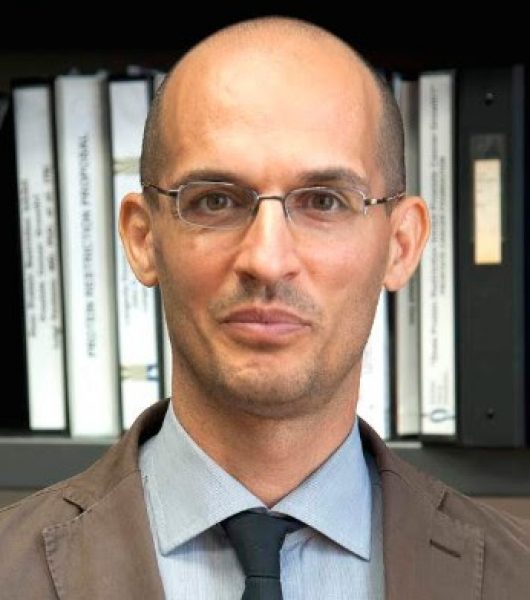Lifestyles and nutrition: the challenges of the future
Professor Luigi Fontana illustrated, at FBK, the most effective strategy to keep physical and mental well-being. The ingredients are three: healthy nutrition, physical activity and cognitive training
“Health is a state of total physical, mental and social well-being, and not simply the absence of diseases or conditions”. Is this definition by the World Health Organization (WHO) utopia? Luigi Fontana, a full professor of nutritional science at the University of Brescia and Washington St. Louis and author of “La felicità ha il sapore della salute“, gave a talk at FBK Povo on May, 18.
Meeting the definition of WHO is not an impossible task, according to the professor, provided that one embraces a plan based on three pillars: nutrition, physical activity and cognitive training.
«Obesity is associated with the overwhelming majority of chronic diseases, from diabetes to cardiovascular diseases to cancer and inflammatory diseases», Fontana said, stressing the importance of maintaining a flat abdomen: possibly, less than 94 centimeters for men and 80 centimeters for women.
But how effective is caloric restriction in losing weight? “Recent experiments on monkeys show that eating little increases lifespan and can prevent the onset of cardiovascular or cancer diseases by 50%. But there are strong indications of long-term positive effects on humans as well”. In particular, “intermittent fasting” has been expreimented, that consists in fasting almost completely for 2 or 3 days a week (only raw or cooked vegetables, with a tablespoon of extra virgin olive oil are permitted). «In some individuals, this approach led to losing 25 kilos in six months». In addition, experiments on mice show the effectiveness of prolongued fasting each day. “In twenty-four hours, you should eat in a 8-10 hour window, while eating 4-5 meals a day is not advisable”.
Of course, every fast becomes useless if the quality of the food that we assume is poor. According to Fontana, the Mediterranean diet remains one of the most effective, especially if you replace refined and processed foods with whole foods rich in fiber.
Another determining factor is physical activity: aerobics, Fontana explained, has the effect of increasing the number of mitochondria, which transform fat and carbohydrates into ATP. The beneficial effects, though, become substantial only if the physical activity is constant and regular.
However, taking care of physical health is not enough; dedicating equal attention to cognitive health is equally important. The brain, in fact, behaves like a muscle, and must be stimulated. “In the coming years, as the number of elderly people grows, a 300% increase in Alzheimer‘s patients is expected,” Fontana said. A true social emergency not only for the sick, but also for their families. It is therefore important to get involved intellectually also whn we get older, learning new things and constantly stimulating our brain.
The rules we have to comply with to ensure physical and mental well-being are clear enough, yet many people do not seem to be really aware of their risk, neglecting to devote the necessary attention to nutrition and physical activity (thanks to the frenetic pace of life modern). “We must strive to be mindful, living in the present and being aware of what is really important”, the professor said.
If we don’t reverse direction, the social consequences could be very harmful. “In just 15 years, one in three people in Italy will be over 65. There will be many seniors, but many of these will not be in good health. Waiting lists will become longer and health care costs could cause a collapse: it is a real time bomb». Time to diffuse it is running out.

